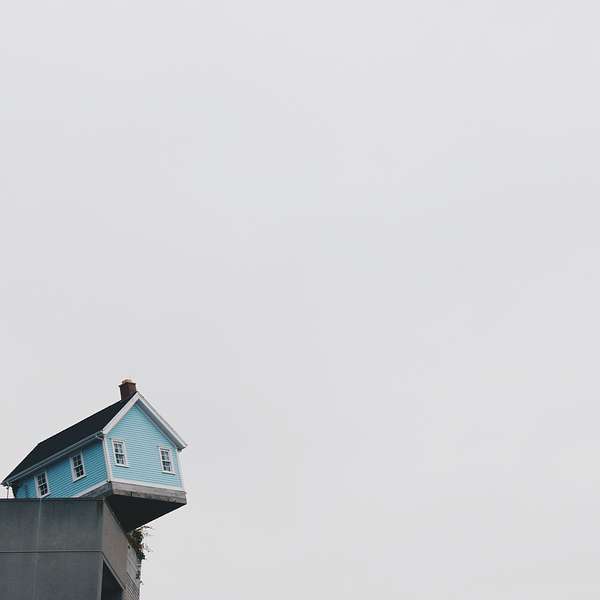
Teaching From Home
Teaching From Home
On Ketchup And Precarity
In which our host receives an Amazon package, gives a shout-out to Dorothy Day, and ponders the connection between memory and fortune-telling.
*You can read about Dorothy Day on "Poverty and Precarity" in The Sun here: https://www.thesunmagazine.org/issues/520/poverty-and-precarity
**You can read "Imagining the Future Is Just Another Form of Memory" in The Atlantic here: https://www.theatlantic.com/science/archive/2017/10/imagining-the-future-is-just-another-form-of-memory/542832/
***Photo by Cindy Tang on Unsplash
Kelly C. George, Ph.D.: 0:00
A lot of us are feeling unsure about the future. And I think for many of us, it could even be the first time in our lives that we feel unable to plan. A few days ago, the beginning of April, I opened my front door and there was an Amazon package on the step. I opened it up and discovered that it was a bottle of ketchup I'd ordered a month ago on March 26. And I looked up and the delivery man was getting back into his van, closing the door and driving away. And I thought: this person just risked his life so that I can have a bottle of ketchup. I guess when I ordered that ketchup in April, I mean, all I was thinking is, Gosh, my son really likes to eat ketchup and we're almost out, and it seems like it's hard to find it right now, so I better put in an order on Amazon right away so that I have what I need for the future. And there's a way in which, of course, all of us really are vulnerable to what the future holds right now. But I think that most of us, my peers, people in the middle and upper classes, we're really on a day-to-day basis, probably just frantically ordering catch up. Which is to say, Gosh, we have so much access, actually, to controlling our futures in these small ways. And yes, we don't know what will happen with the economy and the terrifying unemployment rate and the loss of our loved ones, which inevitably will grow, which inevitably will effect all of us at some point. Thinking about ketchup and the future, I found myself thinking about this term "precarity." And precarity is just another form of the word precarious or precariousness, but precarity has been used specifically with respect to poverty, that precarity is an element of poverty. And specifically Dorothy Day, the activist and journalist and co-founder of the Catholic Workers Movement, wrote about poverty and precarity back in the 1950s. The Catholic Workers Movement was a group of loosely connected communities that adopted voluntary poverty, and Day was very aware of the fact that voluntary poverty was different than poverty that you didn't choose, and one of the ways that it was different is that it was very hard to reproduce precarity. It was hard to actually opt-in to a future that was unsure because, she said, the more food she gave away in her little community, the more food would come in. And the more clothing drives she had, the more clothing would come to them. And she describes that she would pursue precarity wherever she could, except for inside the church. She describes that the refectory was near collapsing and that her community members put in some beams to shore it up so that it wouldn't fall in on their heads. And there's a way in which she's pointing us to the voluntariness of their precarity that even this group of very dedicated people who wanted desperately to experience the poverty and the inability to control the future really couldn't fully commit to it, because at the end of the day they didn't want the ceiling to collapse on their heads. They wanted to shore it up. There was this article in The Atlantic, gosh, it was back a few years ago now, in 2017. But somebody reposted it recently in social media, and I just thought it was so perfect for understanding right now. And it's a piece of science writing, but it's a description of how our ability to imagine the future as human beings is just another form of memory. In other words, the way that we predict our futures is entirely predicated on our past experience. So if we know that we're going to go on a vacation to the beach, for example, the essay explains, we piece together all of our previous experiences of the beach, and that creates our mental image of what our future trip to the beach will be like. And there's a kind of common sense to this, right? Of course, it would be hard to imagine a future completely, nothing like our past. I mean, that's one of the reasons why science fiction, of course, as foreign as it might seem, it's always just a reflection of the moment in which it's written or of the imagination of the author. But it's always an inflection of what that person knows, so this is one way that it makes it so hard for us now, to imagine our futures because most of us have never experienced a present like this one. We've never been to this beach, so we can't really see ahead of us suddenly. And that's extremely disconcerting. And so I think about that bottle of ketchup and all the bottles of ketchup we're ordering on the backs of some delivery man or woman to help us feel just a little more secure, to help get us out of this precarity that we fear. I think about how, just not ready, not familiar we are with dealing with this unknown. And so all we can do is try in our little ways to recreate our past in our future and know that maybe we don't know what the world holds. But at least I know that my son will have ketchup with his fries next week.